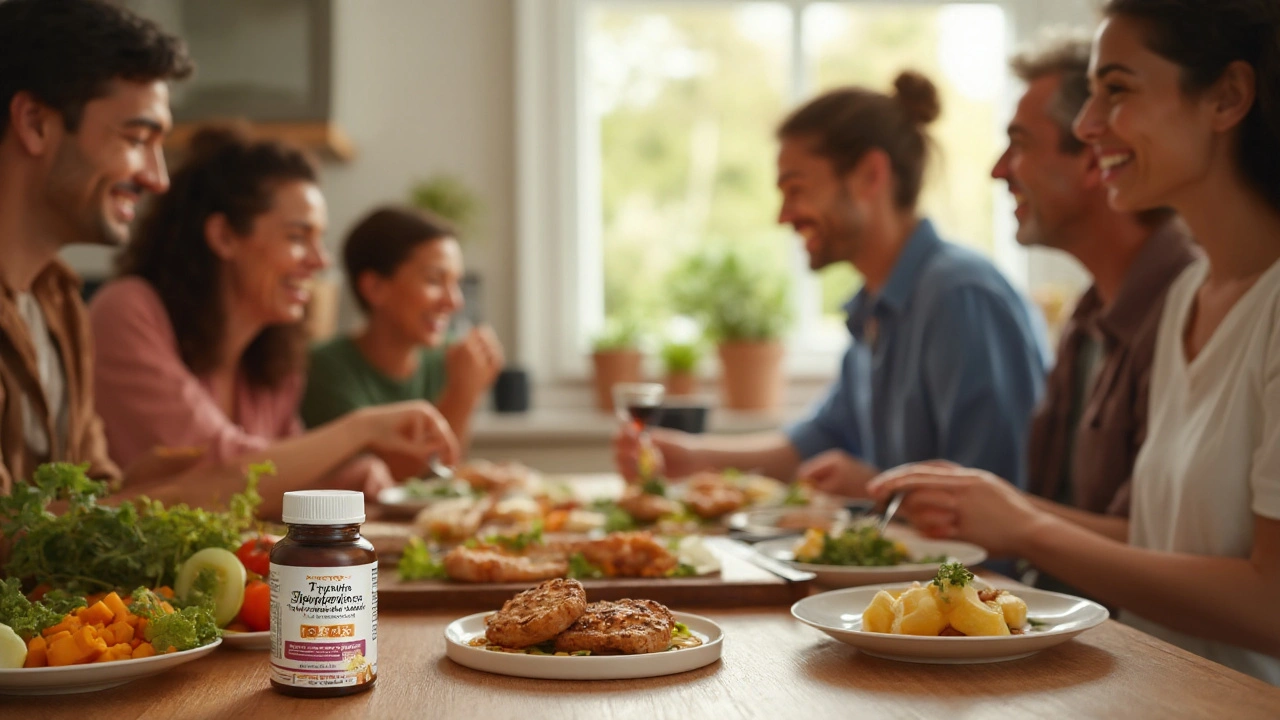Natural Digestion: Simple Ways to Improve Your Gut
Feeling bloated, slow, or uncomfortable after meals? Good digestion starts with a few small habits you can use today. Focus on how you eat, what you eat, and how you live between meals.
Chew your food well. It sounds basic, but chopping food into smaller pieces in your mouth helps stomach acid and enzymes work faster. Aim for about 20–30 chews per bite for dense foods like meat or bread. Slower chewing reduces swallowed air and eases bloating.
Choose fiber-rich foods. Vegetables, fruits, whole grains, beans, and nuts feed the good bacteria in your colon and help stool move. Start with small increases—adding one extra serving of vegetables a day for a week keeps gas and cramping low while your gut adjusts.
Keep hydrated. Water helps fiber expand and keeps stool soft. Sip water across the day and especially with meals. Limit sugary drinks that can disturb gut balance.
Add fermented foods. Yogurt, kefir, sauerkraut, kimchi, and miso supply live bacteria that can help digestion and reduce constipation for many people. Start with a small serving daily and watch how your body responds.
Use gentle exercise. A 20–30 minute walk after a meal speeds digestion by moving air and food through the gut. Regular activity also lowers stress and improves long-term gut motility.
Mind your meal timing. Give your body a predictable schedule. Eat at roughly the same times each day and avoid heavy late-night meals. Fasting windows of 12–14 hours overnight often help some people reset digestion without extra pills.
Watch for problem foods. Common triggers include fried foods, processed meals, high-fat fast foods, artificial sweeteners, and excess caffeine. Keep a simple food log for two weeks to spot patterns between what you eat and how you feel.
Try short-term supplements if needed. Probiotics or digestive enzymes can help some people with specific issues. Choose products with clear strain names and doses, and check with a healthcare provider if you take prescription drugs or have a chronic condition.
Lower stress to help digestion. Deep breathing, brief meditation, or even a warm bath before bed reduces the fight-or-flight response that stops digestion. Stress often shows up as bloating, cramps, or altered bowel habits.
When to see a doctor. See your care provider if you have severe pain, unexplained weight loss, blood in stool, persistent heartburn, or sudden changes in bowel habits. Those symptoms need prompt medical checks.
Normal poop ranges from three times a day to three times a week — what's normal for you matters more than textbook numbers. Many prescription drugs can change digestion: opioids, some antidepressants, and iron supplements often cause constipation; antibiotics can cause diarrhea. If a medicine is the likely cause, talk with your pharmacist about alternatives, dose timing, or adding fiber and probiotics. Small fixes often manage side effects without stopping treatment.
Small changes add up. Try one habit for two weeks—like more water, an extra vegetable, or a 15-minute walk—and notice the difference. Natural digestion is about steady habits, not overnight fixes. Try today.

Trypsin Supplements: How They Boost Your Digestive Health Naturally
Discover how trypsin supplements can improve your digestive health, break down proteins better, reduce bloating, and support a comfortable gut. Real talk on what works in 2025.
